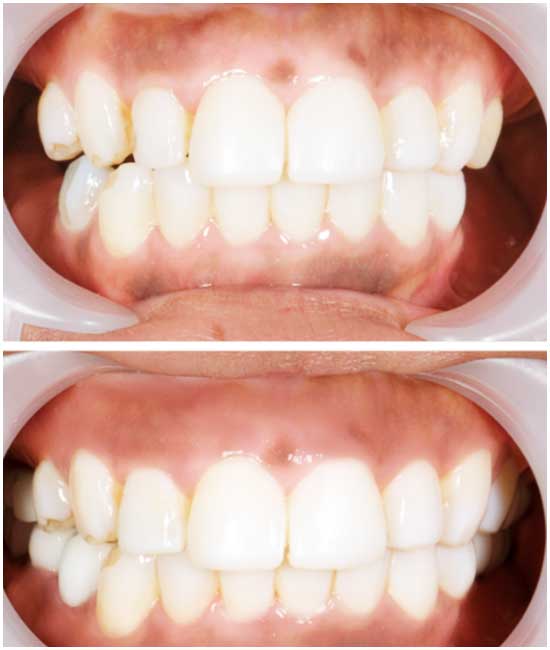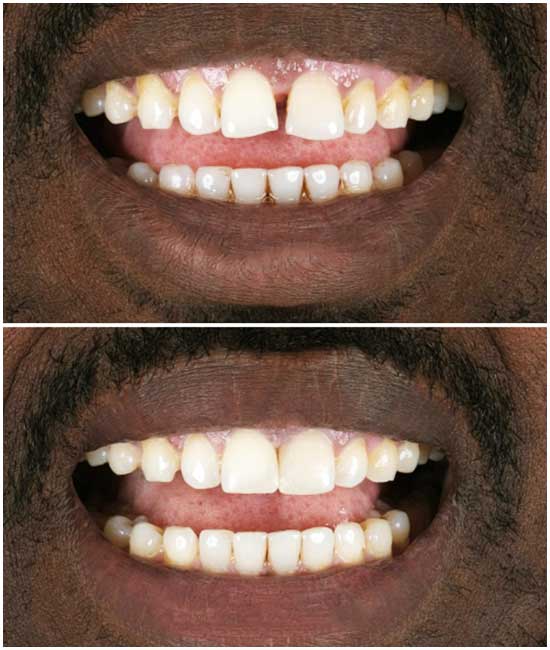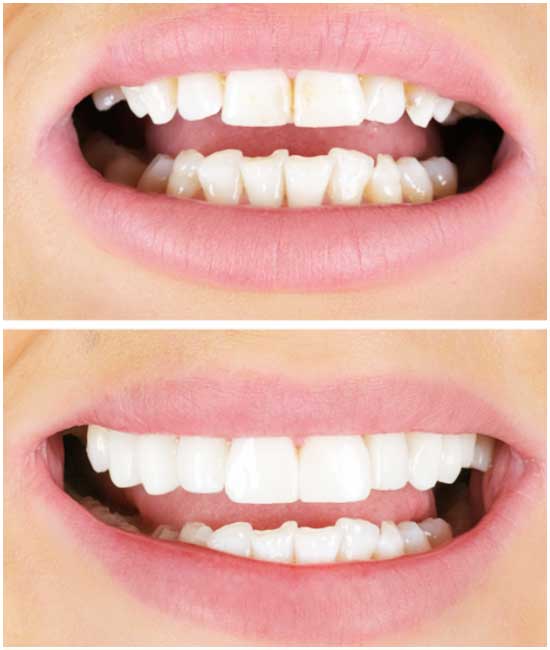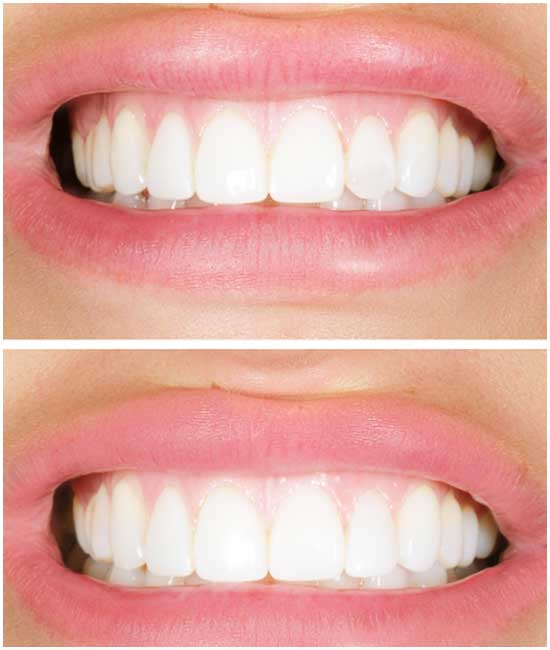COMPOSITE BONDING
Composite bonding is a popular cosmetic dental procedure offered in Turkey, providing patients with an effective solution for improving the appearance of their teeth. This minimally invasive treatment involves the application of a tooth-colored composite resin material to the teeth to repair chips, cracks, stains, or gaps, and to enhance their overall aesthetic appeal.
In Turkey, composite bonding is performed by skilled and experienced dentists who utilise advanced techniques and high-quality materials to achieve natural-looking results. This article explores the benefits, procedure, and considerations associated with composite bonding in Turkey, offering valuable insights for individuals seeking to enhance their smiles through this innovative dental treatment.
We provide the exceptional service we’d want to experience ourselves!
Get offers for dental treatment prices in turkey
BEFORE&AFTER PHOTOS





Types of Composite Bonding in Turkey
- Direct Composite Bonding: This method involves the direct application of composite resin material to the teeth by the dentist. It is used to repair minor chips, cracks, or gaps, as well as to improve the shape and contour of the teeth.
- Indirect Composite Bonding: In this approach, custom-made composite veneers or inlays/onlays are fabricated in a dental laboratory based on impressions taken by the dentist. These restorations are then bonded to the teeth during a subsequent appointment, providing a more precise and durable solution for aesthetic enhancements.
- Composite Bonding for Smile Makeovers: Composite bonding can be used as part of a comprehensive smile makeover treatment in Turkey. Dentists utilise this technique to address multiple cosmetic concerns, such as discoloured, misaligned, or irregularly shaped teeth, to achieve a harmonious and attractive smile.
- Composite Bonding for Tooth Whitening: Composite bonding can also be utilised for tooth whitening purposes in Turkey. Dentists apply tooth-coloured composite resin material to the surface of the teeth to conceal stains and discolouration, resulting in a brighter and more youthful smile.
- Composite Bonding for Dental Restoration: Besides cosmetic enhancements, composite bonding is used for dental restorations in Turkey. Dentists utilise this technique to restore decayed or damaged teeth, providing both functional and aesthetic improvements for patients.
These various types of composite bonding procedures offer individuals in Turkey versatile solutions for addressing their specific dental concerns and achieving their desired smile transformations.
Installing Composite Bonding in Turkey
Steps for Installing Composite Bonding in Turkey:
- Consultation: The process begins with a consultation with a qualified dentist in Turkey. During this appointment, the dentist will assess your dental concerns, discuss your treatment goals, and determine if composite bonding is the appropriate option for you.
- Tooth Preparation: Unlike traditional veneers or crowns, minimal preparation of the tooth surface is required for composite bonding. The dentist will lightly etch the tooth surface to create a rough texture, which helps the bonding material adhere securely to the tooth.
- Shade Selection: The dentist will select the appropriate shade of composite resin material that closely matches the natural colour of your teeth, ensuring seamless integration and a natural-looking result.
- Application of Bonding Material: The dentist will apply the composite resin material directly onto the prepared tooth surface in layers. Each layer is meticulously shaped and sculpted to achieve the desired shape, size, and contour of the tooth.
- Sculpting and Shaping: Using specialised dental instruments, the dentist will sculpt and shape the composite material to mimic the natural anatomy of the tooth. This process involves carefully refining the shape, smoothing the surface, and ensuring proper alignment with adjacent teeth.
- Bonding and Curing: Once the composite material is sculpted to perfection, the dentist will use a curing light to harden and bond the material to the tooth surface. This curing process ensures optimal strength and durability of the bonded restoration.
- Final Polishing: After the bonding material has been cured, the dentist will polish the surface of the composite restoration to achieve a smooth and lustrous finish. This step helps enhance the aesthetic appearance of the bonded tooth and ensures a seamless blend with the surrounding teeth.
- Bite Adjustment: The dentist will check your bite and make any necessary adjustments to ensure proper occlusion and alignment of the bonded tooth with the opposing teeth.
- Final Inspection: Once the composite bonding procedure is complete, the dentist will thoroughly inspect the bonded restoration to ensure its quality, functionality, and aesthetic appeal. Any final adjustments or refinements may be made as needed to achieve optimal results.
- Post-Procedure Care Instructions: Finally, the dentist will provide you with post-procedure care instructions, including oral hygiene guidelines and recommendations for maintaining the longevity of your composite bonding restorations. Regular dental check-ups and cleanings are essential to monitor the condition of the bonded teeth and ensure their continued health and stability.
FAQ about Composite Bonding turkey
Here are the answers to your questions:
How much do composite bonds cost in Turkey?
The cost of composite bonding in Turkey varies depending on factors such as the number of teeth treated, the complexity of the case, and the location of the dental clinic. On average, the cost of composite bonding for a single tooth in Turkey can range from £100 to £300.
How much does composite bonding cost?
Composite bonding typically costs less than other cosmetic dental treatments such as porcelain veneers or dental crowns. In Turkey, the cost of composite bonding is generally more affordable compared to many Western countries.
Where is the cheapest country to get composite bonding?
Turkey is often considered one of the cheapest countries to get composite bonding due to its lower overall cost of living and competitive pricing in the dental industry. Many dental clinics in Turkey offer high-quality composite bonding services at a fraction of the cost compared to other countries.
How much do composite veneers cost in Turkey?
The cost of composite veneers in Turkey may vary depending on factors such as the number of veneers required, the materials used, and the expertise of the dentist. On average, the cost of composite veneers in Turkey ranges from £150 to £500 per tooth.
Where is the best country to get composite bonding?
The best country to get composite bonding depends on various factors such as the expertise of the dental professionals, the quality of materials used, and the overall affordability. Turkey is a popular destination for dental tourism, offering a combination of high-quality dental care and competitive pricing.
How much does dental bonding cost in Turkey?
The cost of dental bonding in Turkey varies depending on the extent of treatment needed and the complexity of the case. On average, the cost of dental bonding for a single tooth in Turkey can range from £50 to £200.
Should I get composite bonding in Turkey?
Whether or not you should get composite bonding in Turkey depends on your individual dental needs, budget, and preferences. It’s essential to research reputable dental clinics, read patient reviews, and consult with qualified dentists to determine if composite bonding is the right option for you.
How long does composite bonding last?
The longevity of composite bonding can vary depending on factors such as oral hygiene habits, dietary habits, and regular dental maintenance. With proper care and maintenance, composite bonding can last anywhere from 5 to 10 years or more.
Is composite bonding cheaper than veneers?
Composite bonding is generally more affordable than porcelain veneers, making it a cost-effective option for improving the appearance of your smile. However, composite bonding may not be as durable or stain-resistant as veneers, so it’s essential to weigh the pros and cons before making a decision.